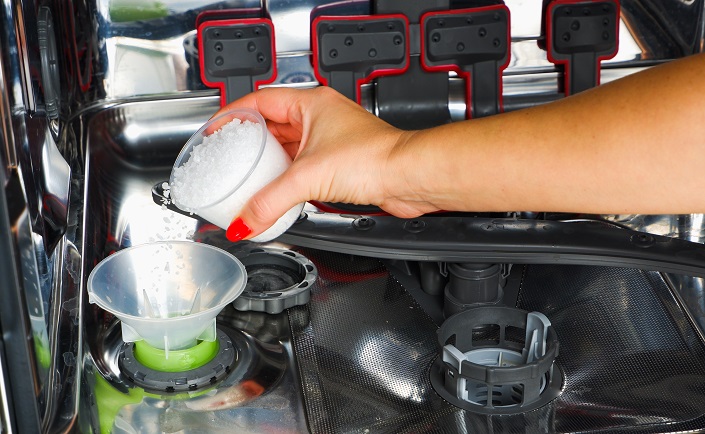Factors that can affect the cost of running a dishwasher
There are several factors that can affect dishwasher running costs.
Dishwasher size
The size of your dishwasher will affect the cost of running it. That’s right, in this case at least, size really does matter. Most dishwashers will fall under one of these categories:
- slimline — 45 cm wide
- countertop (or tabletop) — 55 cm wide
- standard — 60 cm wide
The smaller the capacity of your dishwasher, the less energy and water it'll use per cycle. A standard dishwasher consumes around 1 kWh (kilowatt per hour) per load. The average slimline dishwasher uses a little less at around 0.8 kWh per load.
Water and energy costs

Electricity and hot water make up the main costs of using a dishwasher. How much energy your dishwasher consumes during use varies depending on the model. Usually, it will be somewhere between 1 and 1.5 kWh. But, some of the most energy efficient models now use only 0.54 kWh.
Depending on the setting you choose, a cycle can take anywhere between 1 and 4 hours. Until 31 March 2023, the electricity price cap is set at a unit price of 34p per kWh. So, a dishwasher that uses 1 kWh (at a rate of 34p) on a 1.5-hour cycle, costs 51p.
A standard sized dishwasher uses around 10 litres of water per cycle. The average cost of water per litre in the UK will depend on where you live. But taking a national average of 0.3p, or £0.003, a 1.5-hour cycle would cost roughly 3p in water.
Combined, energy and water costs in this example come to a total of 54p per wash. However, using the eco setting on your dishwasher will lower costs by using less energy and water.
Energy efficiency of the dishwasher

As we mentioned, there are now much more energy efficient dishwashers on the market. Before you buy a new dishwasher, remember to check its energy efficiency label. This is the sticker with the coloured scale from A to G.
It’s there to help highlight how much energy the model will use. The more efficient it is, the less money you’ll spend using it. Take a moment to learn how to understand UK energy efficiency labels. It'll help you spend less on your energy bills.
Use of rinse aid and dishwasher salt

Unless you live in a soft water area, you should be using salt and rinse aid in your dishwasher. Salt softens the water. Without it, you may find a cloudy film on your glassware and cutlery. Rinse aid helps the drying process after the cycle has finished. It stops water forming droplets and drying, leading to water marks.
Without salt or rinse aid, your dishwasher can’t operate at its best. Hard water will lead to a limescale build up. Just like your kettle, too much limescale will clog the heating element and it'll break down.
How to reduce dishwasher running costs
So how can you cut down on your dishwasher’s running costs?
- Wait until you have a full load. You’ll reduce the number of cycles you need to run in a month, and over a year, you'll save yourself a few quid. But don't overfill it either. Water needs room to circulate so you could risk damaging it. Not to mention your cups and dishes coming out so dirty that you need to run another cycle.
- Use the eco programme whenever you can. Consult your manual to ensure you know which one this is. The eco programme uses less energy and water, but still supplies a quality clean. Some tariffs make electricity cheaper between 10pm and 8am too so stick it on before you head to bed.
- Maintain and look after your dishwasher. If you're looking to cut costs, a call-out fee for dishwasher repairs is the last thing you want. Keep the inside of your dishwasher clean and free of food scraps to avoid it clogging up. Remember to use salt in your machine, especially if you live in a hard water area.
- Choose an energy-saving model. Modern dishwashers are far more energy efficient than their historical counterparts. Spend a little more upfront on an energy efficient machine and you’ll save on all those future energy bills.
Have questions?
Our blog is loaded with more related articles

Dishwasher tips
Common dishwasher problems and how to fix them
Although your dishwasher can take all the strain away from washing up, and helps hygienically clean your dishes, it still needs...
Read more

Dishwasher tips
A guide to rinse aids and dishwasher salts
From whether you need rinse aids to understanding the purpose of dishwasher salt, we’ve put together a guide answering ev...
Read more

Dishwasher tips
How to use your dishwasher and save energy
In this guide, we’ll give you the tips you need to save energy and money while making your dishes sparkle. The good news...
Read more
